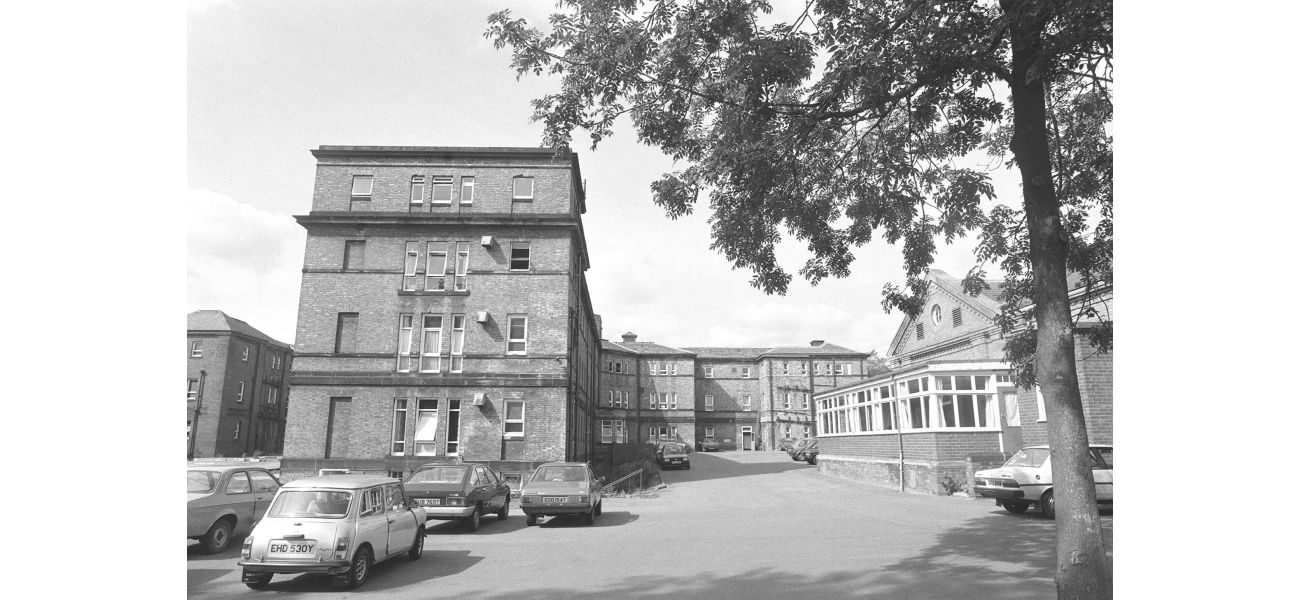22 deaths from food poisoning have doctors stumped.
Stanley Royd Psychiatric hospital in Wakefield was the initial site of the outbreak, but other nearby hospitals also reported cases.
September 8th 2024.

It's been four decades since the infamous food poisoning incident that shook the UK healthcare system. It all started at Stanley Royd Psychiatric Hospital in Wakefield, where a few elderly patients woke up feeling nauseous and with a bad case of diarrhea. Little did anyone know, this was just the beginning of a deadly epidemic that would soon spread to other nearby hospitals.
Within a matter of hours, 36 patients across eight wards were struck with the same symptoms. By the end of the day, one person had tragically lost their life and the next morning, a staggering 240 patients were reporting similar issues. Even the hospital staff were not spared, with over 100 members falling ill and leaving only a handful to care for the sick and elderly.
The culprit was soon identified as salmonella, but the infection continued to spread like wildfire. In the span of a few days, 788 patients were affected, and sadly, 19 of them could not survive the severe dehydration caused by the illness. Health officials were baffled and struggling to pinpoint the source of the outbreak.
Dr. Geoffrey Ireland, who was leading the investigation at the time, shared, "We were dealing with sick, elderly patients and trying to figure out what they had eaten proved to be a challenging task." The odds of tracing the source were only at 50%, and it seemed like an impossible feat.
Eventually, the source was traced back to roast beef that had been cooked, cooled, and left out in the open for 10 hours before being served in salads to the patients. This revelation sparked outrage and led to the first-ever public inquiry into a hospital, as the then-social services secretary was dissatisfied with the handling of the crisis by doctors and managers.
The inquiry brought to light the dire conditions of the 900-bed hospital, which mainly housed elderly individuals with mental health conditions. An investigation by The Sunday Times revealed that the hospital's kitchen was in a deplorable state, with cockroach poison scattered on the floor, dirty kitchenware, and salmonella found in the drains. It was also discovered that cleaning schedules were not being followed, and there was a lack of proper storage facilities.
During the inquiry, it was also revealed that the hospital had been warned about the potential threats posed by its kitchen, but no significant action had been taken. In fact, when experts were finally allowed to enter, valuable evidence had been cleared away. The hospital eventually closed down a decade later in 1995, but the repercussions of the food poisoning incident were felt across the UK, leading to stricter regulations and inspections of hospitals.
The incident also shed light on the inadequacy of Victoria hospital buildings for modern healthcare, with the high ceilings making it nearly impossible to maintain a clean and hygienic environment. It was a tragic event that left a lasting impact on the psychiatric care and food-handling practices in the UK.
Within a matter of hours, 36 patients across eight wards were struck with the same symptoms. By the end of the day, one person had tragically lost their life and the next morning, a staggering 240 patients were reporting similar issues. Even the hospital staff were not spared, with over 100 members falling ill and leaving only a handful to care for the sick and elderly.
The culprit was soon identified as salmonella, but the infection continued to spread like wildfire. In the span of a few days, 788 patients were affected, and sadly, 19 of them could not survive the severe dehydration caused by the illness. Health officials were baffled and struggling to pinpoint the source of the outbreak.
Dr. Geoffrey Ireland, who was leading the investigation at the time, shared, "We were dealing with sick, elderly patients and trying to figure out what they had eaten proved to be a challenging task." The odds of tracing the source were only at 50%, and it seemed like an impossible feat.
Eventually, the source was traced back to roast beef that had been cooked, cooled, and left out in the open for 10 hours before being served in salads to the patients. This revelation sparked outrage and led to the first-ever public inquiry into a hospital, as the then-social services secretary was dissatisfied with the handling of the crisis by doctors and managers.
The inquiry brought to light the dire conditions of the 900-bed hospital, which mainly housed elderly individuals with mental health conditions. An investigation by The Sunday Times revealed that the hospital's kitchen was in a deplorable state, with cockroach poison scattered on the floor, dirty kitchenware, and salmonella found in the drains. It was also discovered that cleaning schedules were not being followed, and there was a lack of proper storage facilities.
During the inquiry, it was also revealed that the hospital had been warned about the potential threats posed by its kitchen, but no significant action had been taken. In fact, when experts were finally allowed to enter, valuable evidence had been cleared away. The hospital eventually closed down a decade later in 1995, but the repercussions of the food poisoning incident were felt across the UK, leading to stricter regulations and inspections of hospitals.
The incident also shed light on the inadequacy of Victoria hospital buildings for modern healthcare, with the high ceilings making it nearly impossible to maintain a clean and hygienic environment. It was a tragic event that left a lasting impact on the psychiatric care and food-handling practices in the UK.
[This article has been trending online recently and has been generated with AI. Your feed is customized.]
[Generative AI is experimental.]
0
0
Submit Comment




